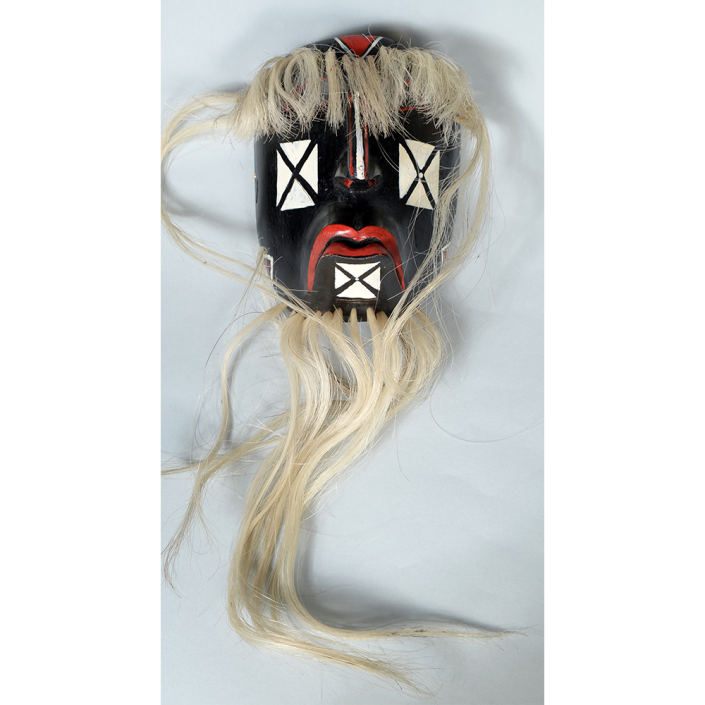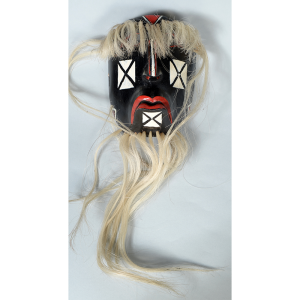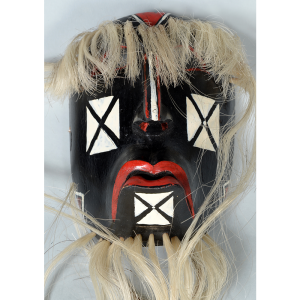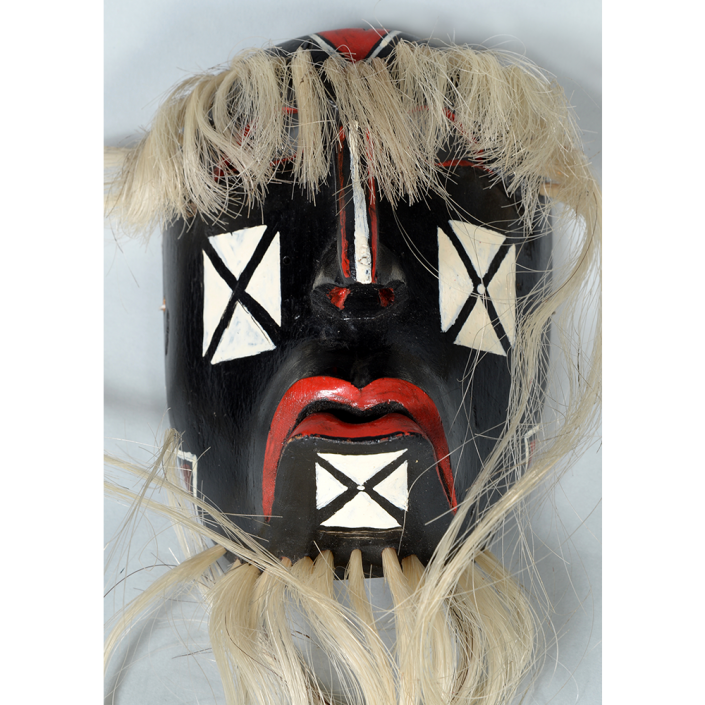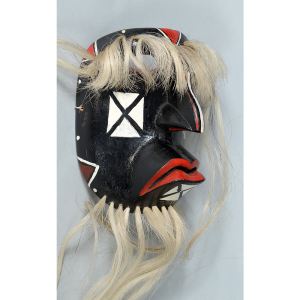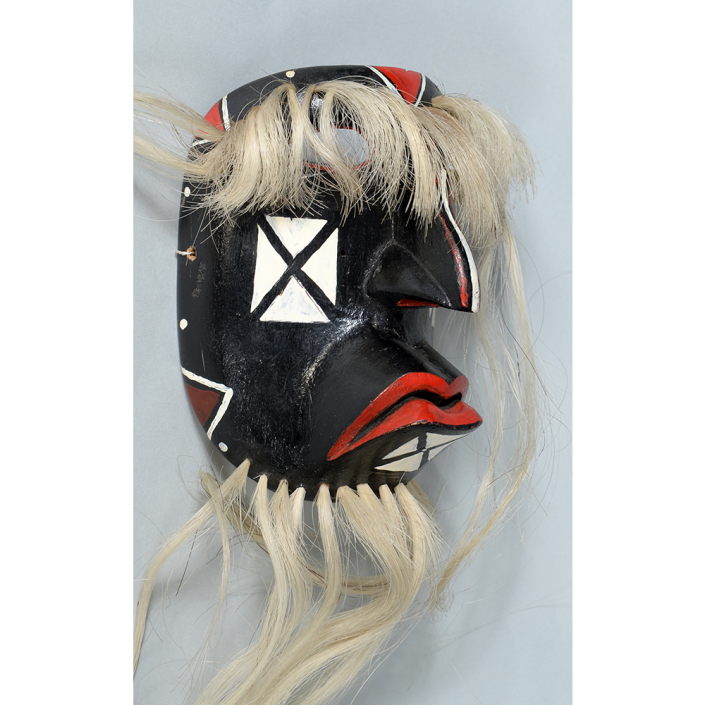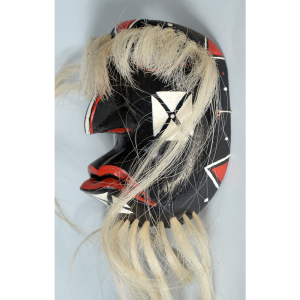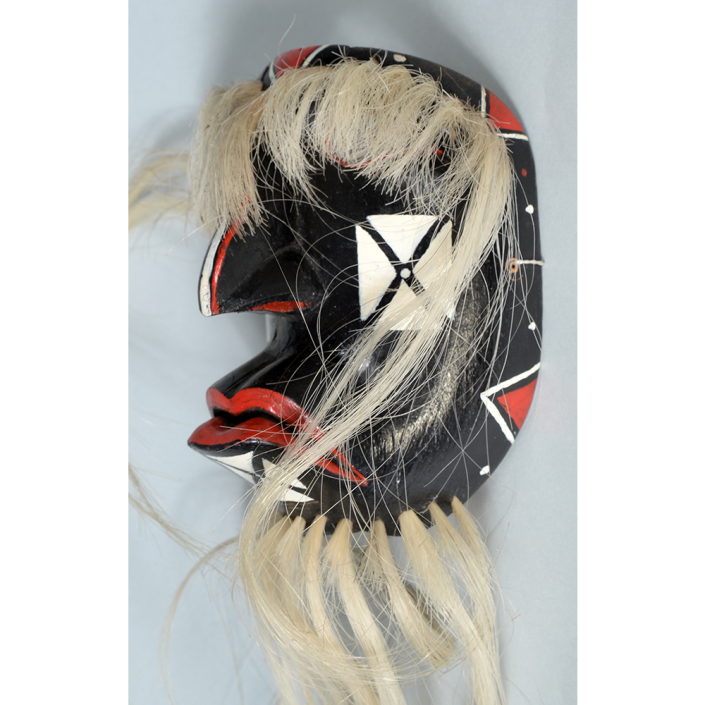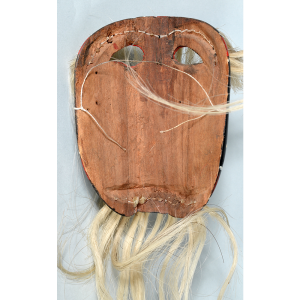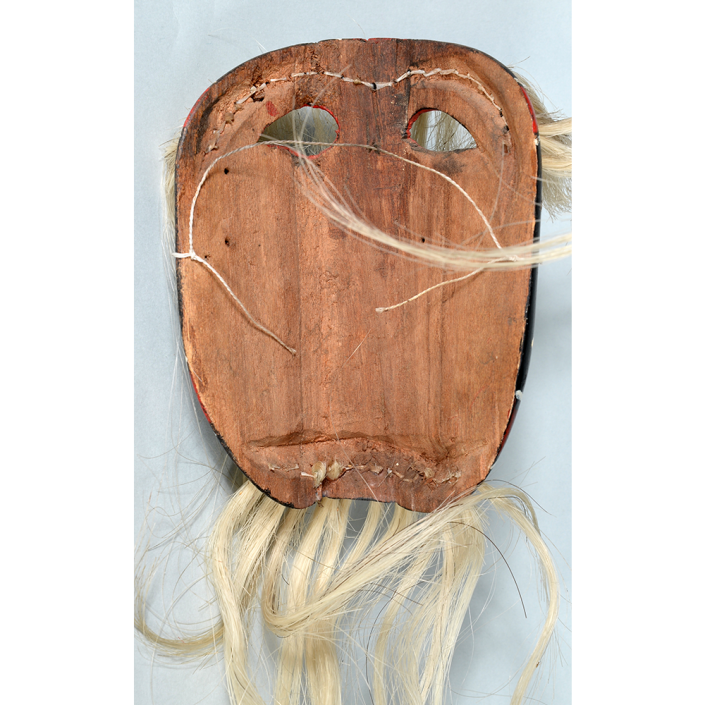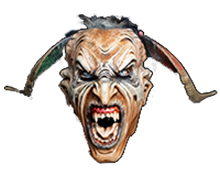TITLE: Yaqui Pasko’ola Mask
TYPE: face mask
GENERAL REGION: Latin America
COUNTRY: Mexico
SUBREGION: Sonora
ETHNICITY: Yaqui
DESCRIPTION: Pasko’ola Mask with X Theme
CATALOG ID: LAMX128
MAKER: Unknown
CEREMONY: Pasko’ola
FUNCTION: celebration; entertainment; funeral; protection
AGE: ca. 1980s
MAIN MATERIAL: wood
OTHER MATERIALS: paint; string; horse hair
The Yaqui and related Mayo people inhabit the desert in the Mexican state of Sonora and southern Arizona. Their religious beliefs are a syncretic version of traditional animist practices and Jesuitical Catholicism. The pasko’olas (in the Spanish, pascolas) were malignant spirits, or children of the Devil, whom God won in a game. For that reason, their masks frequently have crucifixes and they wear a belt with twelve bells, each representing an apostle. To symbolize their evil origins, the masks have ugly expressions and vermin such as lizards, snakes and scorpions painted on them. In addition, dancers wear cords and butterfly cocoons on their legs, representing snakes and their rattles. They also wear a flower on their head, to symbolize rebirth and spring. They frequently play the role of clowns, provoking laughter in the audience by mimicking animals, reversing gender roles, organizing mock hunts, and making jokes.
Pasko’olas are danced at every major religious festival, as well as at birthdays, weddings, and funeral celebrations. For example, in Vicam, pasko’olas have traditionally danced on Día de San Juan Bautista (June 24). Sometimes a group of pasko’olas will be accompanied by a deer dancer, who dances with a taxidermy deer head as a crest. Generally, only men are pasko’ola dancers, but women have sometimes been allowed to dance with the permission of the male dancers.
